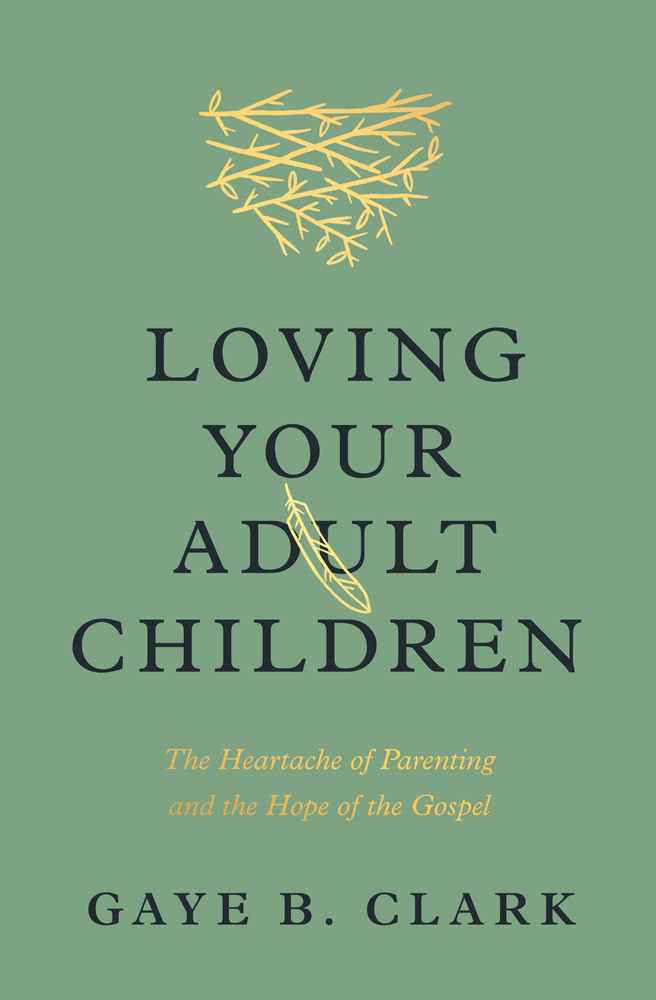
Loving Your Adult Children is a book that helps me think and pray 10-15 years down the road and one that can help me be a helpful resource to the parents that I partner with as a high school principal. Our kids are currently 15 and 11, but we’ve got lots of friends with kids in college and beyond and we know we will be there in the blink of an eye as well. And we have a lot to do now to lay the groundwork for how our relationship will go with our kids in those days. Clint and I pray that the Lord would allow our family to walk in His plans and purpose while our kids are young as well as when they grow up and have families of their own. We are making investments now that we pray that the Lord will bring to harvest in the days ahead. We also have some precious friends walking through heartache with adult children and this helps us know how to pray for and be great friends to them in this season.
I highlighted several things while reading and have posted those notes below. I found this book to be very helpful!
- Christians don’t primarily raise their children to become fully functioning adults, although that is part of their task. Instead, their primary aim is to teach their children to place their hope in God alone through the finished work of Jesus Christ. It would be tragic to bring up a child who was able to obtain an excellent job, marry, and raise a beautiful family—become someone who was considered an upstanding member of his community—but does not have a life-giving relationship with Jesus Christ, “for what does it profit a man to gain the whole world and forfeit his soul?” (Mark 8:36). p. 12
- Paul Tripp writes about one aspect of treating our children as idols when he says, We begin to need [our children] to be what they should be so that we can feel a sense of achievement and success. We begin to look at our children as our trophies rather than God’s creatures. We secretly want to display them on the mantels of our lives as visible testimonies of a job well done. When they fail to live up to our expectations, we find ourselves not grieving for them, but angry at them, fighting against them, and, in fact, grieving for ourselves and our loss. We’re angry because they’ve taken something valuable away from us, something we’ve come to treasure, something that has come to rule our hearts: a reputation for success. (Paul David Tripp, The Idol of Success) p. 22
- When was the last time you wept over your sin? What habit, desire, or agenda has God recently challenged you to surrender to him? When was the last time you actively sought the Lord and asked him to open your eyes to unconfessed or unrepented sin in your life? These kinds of spiritual encounters and practices can greatly affect your relationship with your adult child because your offenses toward God affect not only your walk with him but others too. When our hearts ache over the behavior of our adult children, do we remember that we may have negative behaviors that they can clearly see and we cannot? p. 34
- One of the most shattering realizations we parents must face is that what our kids need most isn’ t us but Christ. Our job is to point them to him. It is an ironic God blessing that we do this best when we’re at our weakest. p. 41
- It’s understandable to feel shame, betrayal, and anger when our adult children disappoint or humiliate us. Jesus knows how betrayal and humiliation feel. He suffered those things for our sake when we were unrepentant sinners (Rom. 5:8). But it wasn’t a voice of wrath that stirred our hearts to conviction—it was his costly love. Christ forgave us much and at a great price. Knowing this can help us respond thoughtfully rather than reactively when we see our children sin. p. 44
- We can feel grief and lament the pain of broken relationships. When our adult children sin against us, we can offer them the kindness of speaking the truth in love. But we should not grow bitter, sulk, and stay angry at God or our adult children. To do this, we need godly friends in our lives, walking with us to help us know when we’ve strayed from lament and grief and into bitterness. p. 49
- Apart from Christ, we are only worthy of condemnation, and the only thing we have earned before God is his wrath. But in Christ, he makes all things new. In Christ, we have access to the Holy Spirit, through whom we can be patient, humble, kind, faithful, and self-controlled. p. 82
- Barry Corey, president of Biola University and author of Love Kindness, writes, The point of being kind with those with whom we disagree is not to be respected or befriended. This may never happen. Nor is the point of kindness to avoid either ruffling feathers or feeling awkward, which is cowardly “niceness.” The point of kindness is to represent Jesus. Being kind to those with whom we disagree helps bring Christ to the center of the situation. Being kind is how Jesus acts. When we walk that way, we reflect and honor him, and it opens doors for what we say about him and the gospel. p. 102
